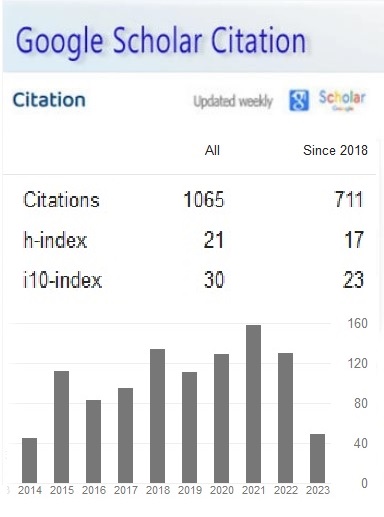Agri-Food System and Artificial Intelligence: Reconsidering Imperishability
Keywords:
Abstract
This research work aims to investigate the function of artificial intelligence (AI) in the agri-food industry, considering their effects on the sustainable development of the environment and society, as well as to understand the role of stakeholders in its supply chain. For more than a decade, scholars, technology experts, and practitioners have paid rapid attention to artificial intelligence (AI) technology innovations and their roles in operational processes management and its challenges for new business models, in a sustainable and socially responsible perspective. Therefore, these stakeholders of agri-food organizations can now assume a proactive or marginal role in the value creation for businesses based on their individual environmental awareness. Although the issues associated with the adoption of new technologies still appear “open” in some industries, such as the agri-food system, rethinking and redesigning the whole business model is required for sustainable development. Methodologically, an in-depth survey and review of the scholar’s literature of relevant information about this subject matter were carried out following two major phases: firstly, was the extraction of related articles from scientific databases (Web of Science, Scopus, and Google Scholar) while the second phase involved analyzing the selected articles. The findings denoted major issues about Artificial intelligence towards a “space economy” to achieve sustainable and responsible business models.
References
Donepudi, P. K. (2014a). Technology Growth in Shipping Industry: An Overview. American Journal of Trade and Policy, 1(3), 137-142. https://doi.org/10.18034/ajtp.v1i3.503
Donepudi, P. K. (2014b). Voice Search Technology: An Overview. Engineering International, 2(2), 91-102. https://doi.org/10.18034/ei.v2i2.502
Donepudi, P. K. (2017). AI and Machine Learning in Banking: A Systematic Literature Review. Asian Journal of Applied Science and Engineering, 6(3), 157–162. http://doi.org/10.5281/zenodo.4109672
Elkington, J. (2013). Enter the triple bottom line. In The Triple Bottom Line; Routledge: London, UK, pp. 23–38.
Filho, N.D.P.A. (2017). The agenda 2030 for responsible management education: An applied methodology. Int. J. Manag. Educ. 15, 183–191.
Joyce, A. and Paquin, R.L. (2016). The triple layered business model canvas: A tool to design more sustainable business models. J. Clean. Prod. 135, 1474–1486.
Mikalef, P., Framnes, V.A., Danielsen, F., Krogstie, J. and Olsen, D. (2017). Big Data Analytics Capability: Antecedents and Business Value. In Proceedings of the Pacific Asia Conference on Information Systems, Langkawi Island, Malaysia, p. 136.
Orriols-Puig, A., Martínez-López, F.J., Casillas, J. and Lee, N. (2013). Unsupervised KDD to creatively support managers’ decision making with fuzzy association rules: A distribution channel application. Ind. Mark. Manag. 42, 532–543.
Sun, Q., Zhang, M. and Mujumdar, A.S. (2018). Recent developments of artificial intelligence in drying of fresh food: A review. Crit. Rev. Food Sci. Nutr. 59, 2258–2275.
Vadlamudi, S. (2015). Enabling Trustworthiness in Artificial Intelligence - A Detailed Discussion. Engineering International, 3(2), 105-114. https://doi.org/10.18034/ei.v3i2.519
Vadlamudi, S. (2016). What Impact does Internet of Things have on Project Management in Project based Firms?. Asian Business Review, 6(3), 179-186. https://doi.org/10.18034/abr.v6i3.520
Vadlamudi, S. (2017). Stock Market Prediction using Machine Learning: A Systematic Literature Review. American Journal of Trade and Policy, 4(3), 123-128. https://doi.org/10.18034/ajtp.v4i3.521
Wirtz, B.W. and Müller, W.M. (2018). An integrated artificial intelligence framework for public management. Public Manag. Rev. 21, 1076–1100.
Downloads
Published
How to Cite
Issue
Section
License
Copyright (c) 2018 Asian Journal of Applied Science and Engineering

This work is licensed under a Creative Commons Attribution-NonCommercial 4.0 International License.








